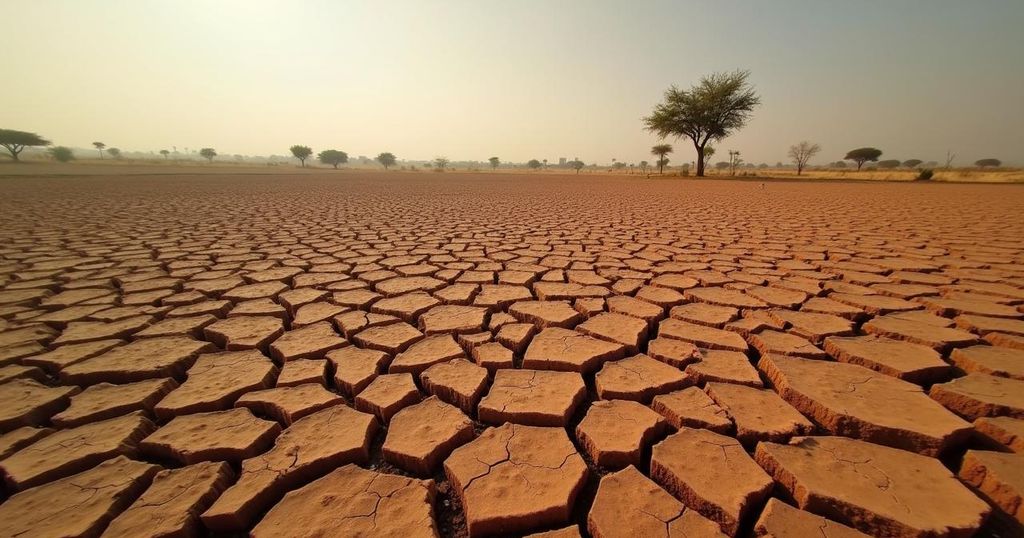Southern Africa faces its worst drought in a century, affecting over 27 million people, with 21 million children malnourished. Key countries have declared national disasters, particularly Zambia and Zimbabwe, suffering significant crop losses. The crisis is fueled by the El Niño phenomenon and compounded by climate change, resulting in food insecurity, diminished hydropower, and drastic measures like wildlife culls for sustenance.
The Southern African region is currently grappling with the worst drought in a century, impacting over 27 million individuals, as reported by the United Nations’ World Food Programme (WFP). The drought has severely affected areas including Lesotho, Malawi, Namibia, Zambia, and Zimbabwe, resulting in widespread food insecurity and malnutrition, particularly among children, with an alarming 21 million children suffering from malnutrition. This humanitarian crisis is further exacerbated as the lean season begins in October, leading to a projected deterioration in conditions until the next harvests, expected in March or April of next year. The drought’s destructive effects have obliterated crops and livestock, with Zambia reporting a 70 percent loss in harvests and Zimbabwe experiencing an 80 percent decline. Moreover, the natural phenomenon of El Niño, coupled with rising temperatures owing to climate change, has prompted below-average rainfall in the region and heightened calls for urgent humanitarian assistance. Concerningly, the drought has also diminished hydropower generation, prompting significant electricity shortages across the region. In efforts to address the dire food shortages, authorities in Namibia and Zimbabwe have taken the extreme measure of culling wildlife, including elephants, to provide sustenance for the starving population. The WFP has underscored the vulnerability of sub-Saharan Africa, highlighting the reliance of millions on rain-fed agriculture and the inadequacy of financial resources to establish climate resilience measures.
The drought that is currently afflicting Southern Africa is not merely a local weather phenomenon but a significant climate crisis that has evolved partly as a manifest effect of the El Niño weather pattern, which disrupts typical rainfall distributions. Furthermore, the region’s reliance on agriculture that depends heavily on rain makes it particularly susceptible to such climate extremes. The consequences of the drought are far-reaching, extending beyond food shortages to include economic distress, energy shortages due to decreased hydropower generation, and increased pressure on wildlife as communities seek alternative food sources. This scenario is a stark illustration of how climate change exacerbates existing vulnerabilities faced by countries in the region, challenging their ability to adapt and respond to such crises.
In conclusion, the historic drought impacting Southern Africa poses an overwhelming humanitarian challenge, affecting millions and resulting in severe malnutrition among children. As the situation is expected to worsen prior to the upcoming harvests next year, immediate and substantial interventions are necessary to address the food insecurity crisis, mitigate the impacts on agriculture, and consider long-term solutions for climate resilience in a region marked by persistent vulnerability to climatic fluctuations.
Original Source: www.aljazeera.com






